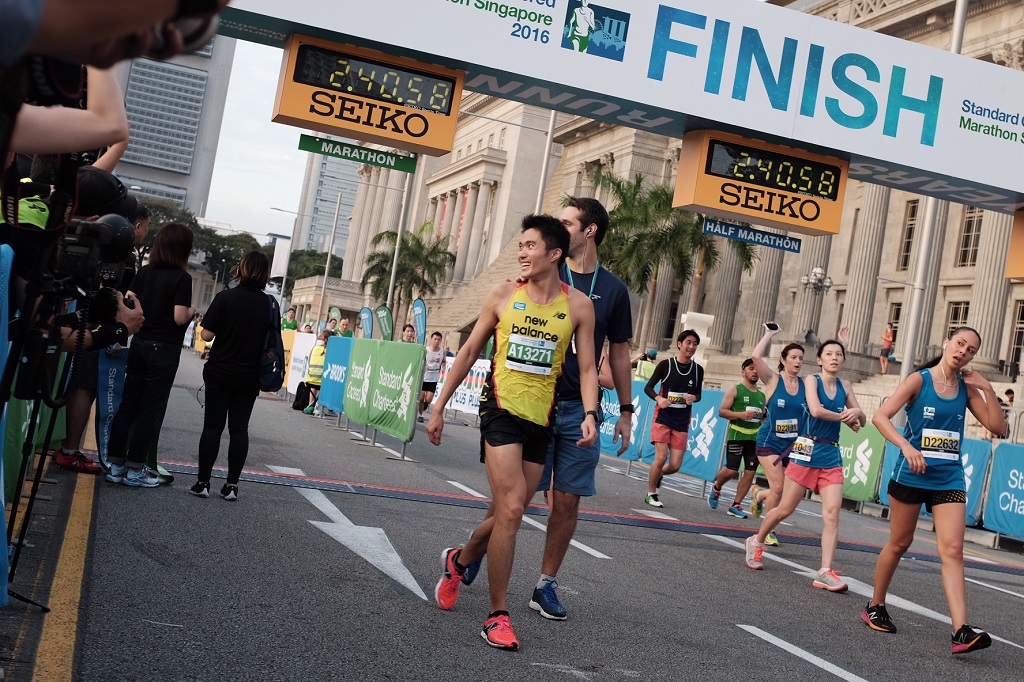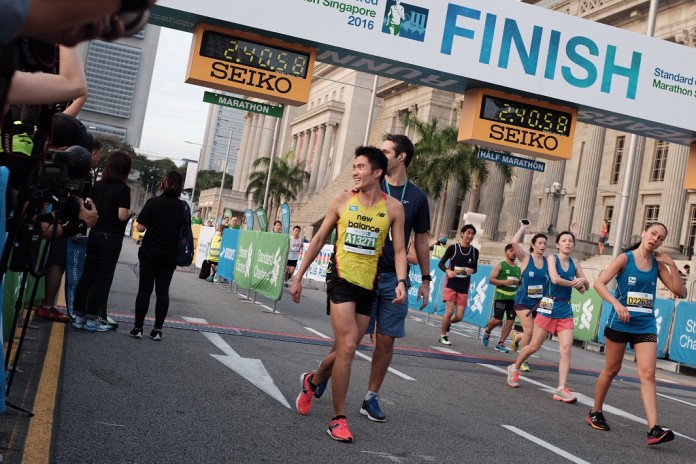SINGAPORE: Kenyans continued their dominance at the Standard Chartered Marathon Singapore on Sunday (Dec 4), with Felix Kiptoo Kirwa clocking in a time of 2hr 17min 17sec in the men’s full marathon.
The 23-year-old fought off the humidity and the competition to clinch the top prize of S$50,000 in his maiden race in Singapore.
“Singapore is a very hot race, I’ve never run a hot race like today before,” he said, adding he only realised he might win at around the 40km mark. “I was not expecting to win this race, there were so many Kenyans and the race was very competitive.”
Fellow Kenyan Rebecca Kangogo Chesir was the women’s champion, finishing the race at 2hr 43min 03sec.
2013 SEA Games champion Mok Ying Ren was the first local across the finish line, with a time of 2hr 41min 03sec.
“I was slightly worried coming to the race – I’ve been training just once a day, running home from work and so on,” said Mok. “So I wasn’t sure how fit I was, and I haven’t really been running any extra-long runs – so I’m glad it turned out well today.”
Mok added that he and fellow national runner Ashley Liew have races lined up to qualify for next year’s SEA Games. But these will not be on Singapore’s shores – Mok plans to run a race in March 2017 in either Japan or South Korea.

Mok Ying Ren was the top local finisher at the Standard Chartered Marathon Singapore.
“Singapore is not really conducive to run a fast time to hit the qualifying mark, so both of us will be going overseas to try and clock our qualifying times,” said Mok. “So for both of us this is more of a tune up race for the marathon next year.”
This year’s race is also the first edition staged by organiser Ironman Asia, and the first time the full and half marathons had a simultaneous flag off along Orchard Road, which Mok said added a lot to the atmosphere of the race.
Apart from some congestion at points, most other runners Channel NewsAsia spoke with had few quibbles about the organisation of the race. But the 2016 edition of the race drew fewer numbers than last year – about 46,000 compared to over 50,000 in 2015.





